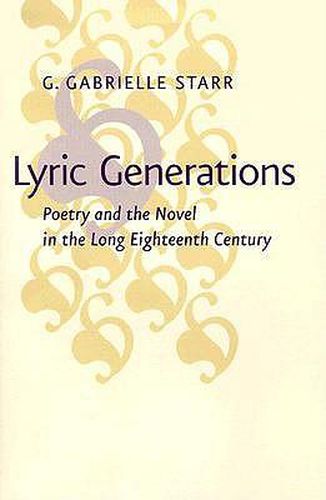Readings Newsletter
Become a Readings Member to make your shopping experience even easier.
Sign in or sign up for free!
You’re not far away from qualifying for FREE standard shipping within Australia
You’ve qualified for FREE standard shipping within Australia
The cart is loading…






In Lyric Generations Gabrielle Starr rejects the usual genealogy of lyric poetry in which Romantic poets are thought to have built solely and directly upon the works of Chaucer, Spenser, Shakespeare and Milton. She argues instead that novelists such as Richardson, Haywood, Behn and others, while drawing upon earlier lyric conventions, ushered in a new language of self-expression and community that profoundly affected the aesthetic goals of lyric poets. Examining the works of Cowper, Smith, Wordsworth, Coleridge and Keats in light of their competitive dialogue with the novel, Starr advances a literary history that considers formal characteristics as products of historical change. In a world increasingly defined by prose, poets adapted the new forms, characters, and moral themes of the novel in order to reinvigorate poetic practice.
$9.00 standard shipping within Australia
FREE standard shipping within Australia for orders over $100.00
Express & International shipping calculated at checkout
In Lyric Generations Gabrielle Starr rejects the usual genealogy of lyric poetry in which Romantic poets are thought to have built solely and directly upon the works of Chaucer, Spenser, Shakespeare and Milton. She argues instead that novelists such as Richardson, Haywood, Behn and others, while drawing upon earlier lyric conventions, ushered in a new language of self-expression and community that profoundly affected the aesthetic goals of lyric poets. Examining the works of Cowper, Smith, Wordsworth, Coleridge and Keats in light of their competitive dialogue with the novel, Starr advances a literary history that considers formal characteristics as products of historical change. In a world increasingly defined by prose, poets adapted the new forms, characters, and moral themes of the novel in order to reinvigorate poetic practice.